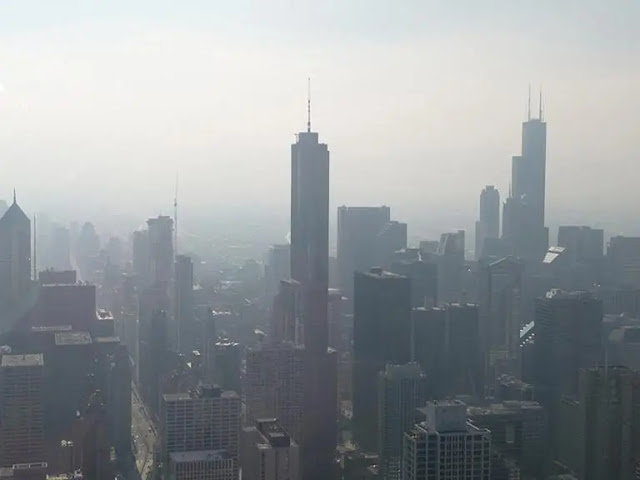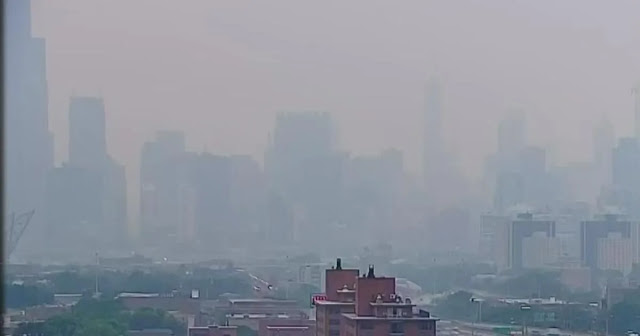The article discusses the effects of wildfire smoke on air quality in Chicago and surrounding areas in Canada and the western United States.
According to the article, the National Weather Service issued an air quality alert for Chicago and parts of Illinois, Wisconsin and Indiana due to the smoke. The smoke has caused hazy conditions and reduced visibility, posing a potential health risk, especially for individuals with respiratory problems or allergies. The article also mentioned that the air quality index reached unhealthy levels in some areas.
It is said that the smoke is caused by wind blowing from wildfires that occur in Canada and the western US. The article highlights that smoke particles can travel long distances and affect air quality in distant areas. It also mentioned the efforts of local agencies to monitor the situation and provide updates to the public.
Briefly, the article reports on air quality alerts issued in Chicago and surrounding areas due to wildfire smoke. It emphasizes the potential health risks associated with low air quality and cites the distant origin of smoke from fires in Canada and the western US.
Canadian wildfires are producing large amounts of smoke and particulate matter, which can be harmful if inhaled. Smoke contains various pollutants including fine particles, carbon monoxide and volatile organic compounds, which can cause respiratory problems and worsen existing health conditions.
To reduce the health risks associated with poor air quality, Chicago area residents are advised to take the necessary precautions.
These precautions may include:
Stay indoors:
If possible, limit your time outside, especially in areas with heavy smoke. Keep windows and doors closed to prevent smoke from entering your home or workplace. Use an air purifier or filter, if available.
Avoid physical exertion:
Engaging in strenuous activities outdoors can increase the inhalation of harmful pollutants. It is best to reduce or avoid outdoor exercise or activities until air quality improves.
Use a mask or respirator.
When outside, wearing an N95 mask or respirator can help filter out fine particles and reduce the amount of smoke inhaled. Make sure the mask fits properly and is suitable for filtering out particles in the air.
Monitor Air Quality Updates:
Stay informed about the air quality status in your area. Check local air quality indexes or websites provided by environmental agencies for real-time updates and guidance on how to protect yourself.
Seek medical advice if necessary:
If you experience severe symptoms like difficulty in breathing, chest pain or persistent cough, seek medical help immediately. Individuals with pre-existing respiratory problems or a weakened immune system should be especially cautious.
It is important to stay updated about the air quality situation and follow any guidance or advisories issued by local authorities. Weather patterns and firefighting efforts can affect the duration and severity of smoke effects. Once the wildfires are under control and wind patterns change, air quality in the Chicago area should gradually improve.


Post a Comment
Post a Comment
If You Have Any Doubts, Please Let Me Know